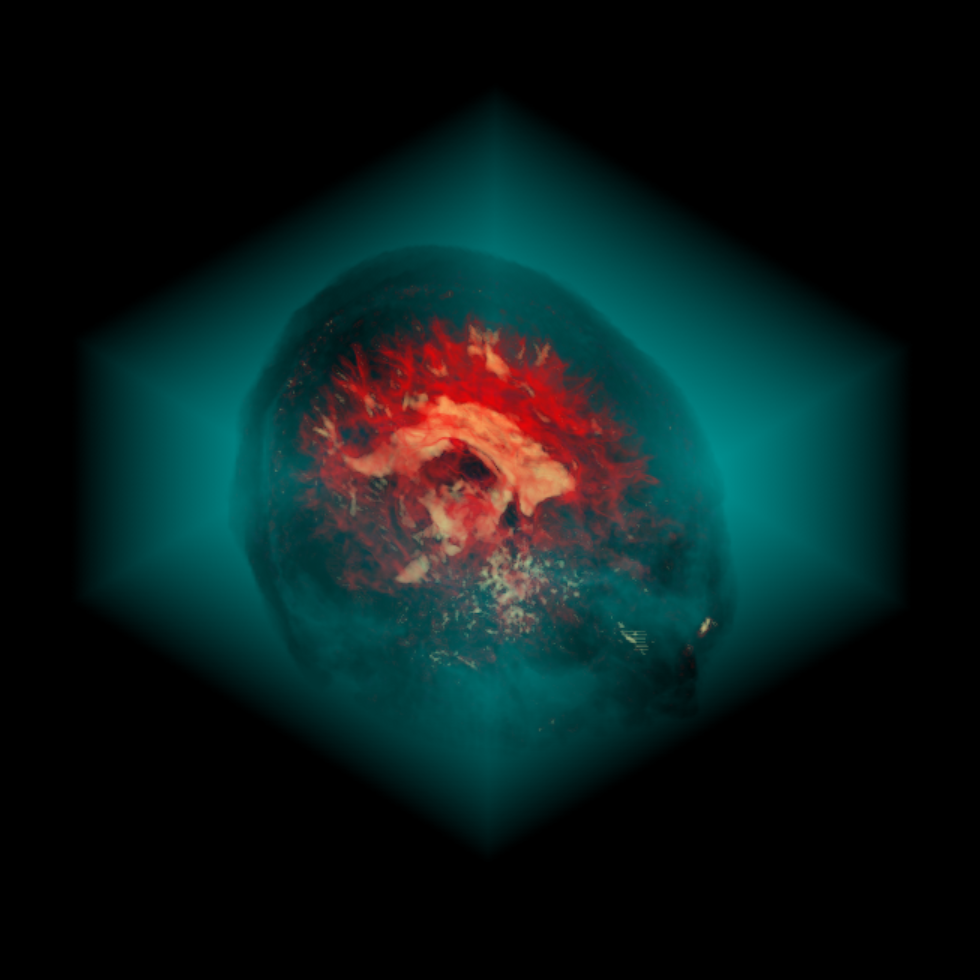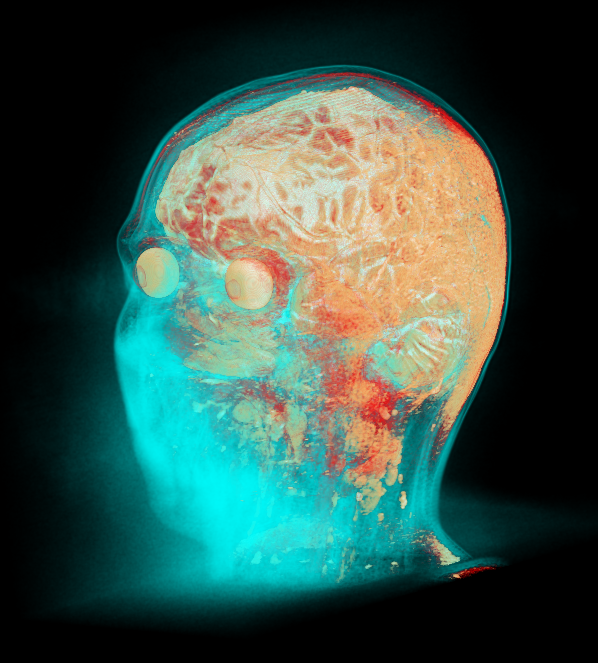Time
I look up at the wooden clockface.
I’m seated on the carpet with the other children. Our teacher moves the clock hands manually, explaining how time works—the big hand and the small hand, sometimes wide apart, at other times close.
Time is always moving in circles, she says. She looks out of the classroom window and I look, too. I can see the shifting gum leaves, like tongues.
Turning back to the clockface, she takes hold of the ticking hand, spinning it so it touches the small black lines around the edge of the circle. She passes me a real clock. Listen, she says. I hold my breath and listen to the clock’s whispery heartbeats.
We barely notice the second hand, she says, but it is there, nevertheless, moving time forward. Tick-tick-tick. Softly. Like a paintbrush,she says, stealing another glance outside.
The gum leaves sweep the windowpane in soft gusts.
She shifts the big hand to a quarter past. See how the small hand moves, she says, when I shift the big hand. She looks at me directly—time is a circle song. I tap it on my knees with my paintbrush fingers, looking into her eyes.
She says: When we get to half-past, it becomes something-TO rather than something-PAST—29 minutes-to and so on, she adds.
I raise my hand. Can it be half-to, I ask, instead of half-past?
No, she says, and sighs.
But I wonder …
At half-to you are on the way to the hospital to have your stomach pumped and I’m sent to school to learn time.
Later, you are crisp and new-clean in your bed and you explain—not about the pumping, about why it was necessary.
I glare at you with a quarter-to eyes.
Years later, I understand.
At half-to my baby’s head is crowning and I say: Get out. Get out. The midwife says, Nearly there, Honey. Don’t push. BREATHE. I’m inside out—I can’t tell the midwife that breathing is automatic, like a tick-tock song. I meant for her to get-out. And him. Both of them, with their half-past words.
Many years later, I understand more fully.
I’m sorry, I say, sighing.
You’re dead so you can’t answer—nevertheless I hear you and feel your breath against my cheek, half-to, your words marking time.
Publication details: Prendergast J 2021, ‘Time’ TEXT Journal, no. 1, pp. 58 - 59
I look up at the wooden clockface.
I’m seated on the carpet with the other children. Our teacher moves the clock hands manually, explaining how time works—the big hand and the small hand, sometimes wide apart, at other times close.
Time is always moving in circles, she says. She looks out of the classroom window and I look, too. I can see the shifting gum leaves, like tongues.
Turning back to the clockface, she takes hold of the ticking hand, spinning it so it touches the small black lines around the edge of the circle. She passes me a real clock. Listen, she says. I hold my breath and listen to the clock’s whispery heartbeats.
We barely notice the second hand, she says, but it is there, nevertheless, moving time forward. Tick-tick-tick. Softly. Like a paintbrush,she says, stealing another glance outside.
The gum leaves sweep the windowpane in soft gusts.
She shifts the big hand to a quarter past. See how the small hand moves, she says, when I shift the big hand. She looks at me directly—time is a circle song. I tap it on my knees with my paintbrush fingers, looking into her eyes.
She says: When we get to half-past, it becomes something-TO rather than something-PAST—29 minutes-to and so on, she adds.
I raise my hand. Can it be half-to, I ask, instead of half-past?
No, she says, and sighs.
But I wonder …
At half-to you are on the way to the hospital to have your stomach pumped and I’m sent to school to learn time.
Later, you are crisp and new-clean in your bed and you explain—not about the pumping, about why it was necessary.
I glare at you with a quarter-to eyes.
Years later, I understand.
At half-to my baby’s head is crowning and I say: Get out. Get out. The midwife says, Nearly there, Honey. Don’t push. BREATHE. I’m inside out—I can’t tell the midwife that breathing is automatic, like a tick-tock song. I meant for her to get-out. And him. Both of them, with their half-past words.
Many years later, I understand more fully.
I’m sorry, I say, sighing.
You’re dead so you can’t answer—nevertheless I hear you and feel your breath against my cheek, half-to, your words marking time.
Publication details: Prendergast J 2021, ‘Time’ TEXT Journal, no. 1, pp. 58 - 59



Sea-Song
I say: Let’s make our own way, today.
Perhaps I add the word separately—
I want to stretch my arm out of the car window, blast the sea-song on repeat, belt the chorus at the top of my voice—I want to sing it on loop like a clawing memory, spinning my wrist and curling my fingers to the instrumental riff
as if I’m back there, night-dancing in sea-licked air, the spindly-soft grass against my calves, my skin seething and drawing in on itself, sweaty salt-tongued-madness.
Charybdis was a sea monster—later rationalised as a whirlpool. Before she displeased Zeus, she was a nymph.
Fuck this thinking.I merely suggested that we part, for a day.
Your eye, you say.
The blood vessels in my eye have burst—smatter-shot in all directions and spark-lit like fine red kelp under my eyeball’s glassy pane—bristling beneath your torchlight gaze.
It’s nothing,I say. A trapped bruise. In the eye the blood has nowhere to go.
I don’t care for your displeasure.
I turn away—I can’t see you, anyway—my pulverised eyeball thrashing with underwater kelp snakes. Coiled clusterfucking inversion… There is nothing shiny, here.
Of course, Charybdis exploded water. There is only so long we can suck it in and hold it there.
I want to sing the sea-song over and over, again, until I’m beneath the surface and what never happened feels real—until you’re here with me, in the cool-heat of underwater blood snakes.
Let me give in and be asked nothing in return.
Let this snakeblood longing settle into my memory-reel like a long exhale, like the relentlessly sighing sea. As if my memory is a form of snakeskin.
Publication details: Prendergast J 2021, ‘Sea Song’ TEXT Journal, no. 1, pp. 59 - 61
Rhodes
We arrive in Rhodes in delirious darknight, a hilltop road beside the church, more like a wide footpath.
I have no more ideas, says the cab driver …
We shift to the floodlit shopfront of Yasou’s Souvlaki, pull out our phones. A motorbike approaches from the steepside—Yasou’s in white cursive script along the black belly of the engine.
We’re lost, I say. From Australia.
I show him a photo of the house, zooming in on the green gate.
I know it, he says.
Daniel straddles the back of the bike. As the bike-light fades I wonder if Yasou will kill Daniel, send his brother to rape me. I see it in fast-time, until the scene is broken by a patch of road that appears to be moving—a guts-out cat, limbs paddling, eyes like tinned lychees.
Jesus-fucking-Christ.
Shining my phone-light on the rocky embankment—loose lichen shifting like drifting seaweed at low tide. I’m fuckeyed—longing for the rockpool sea.
Did I imagine the writhing cat? Guts like maggoty brain matter.
Why do we fester in each other?
I loosen a boulder, carry it closer. It’s okay darlingheart, I say. Strobe-lit, I drop the rock on the cat’s head.
Publication details: Prendergast J 2022, ‘Rhodes’ in Travel. An Anthology of Microlit, edited by Cassandra Atherton, Australia: Spineless Wonders / Short Australian Stories.
BBQ
‘Ungrateful cunts,’ he says, pointing the tongs at his children, mostly grown now.
The plural use of the term lingers on his tongue—a very slight whistle, cunce.
He doesn’t yell and this satisfies her as much as the positioning of the steaming tongs, moving from face to face.
Back in the day there may have been a hurled fork, a fist in a wall. Both and more.
Today it’s remarkably calm and she wallows, sponging the dishes in too-hot water, the woodsmoke marinade steaming around the kitchen as if there were a roast in the oven, as if the dinner was in-promise, as if they were another family.
She’s not much of a dishwasher, these days, but she takes the steel soap-pad, working deliberately, shifting the greasy charcoal from the hinge of the tongs, rubbing at older muck, too, until the tongs spring open, and the hinge screw is set swirling in a whirlpool of briny water.
Publication details: Prendergast J 2022, ‘BBQ’ in TEXT Journal, Vol. 26 No. 1, Australia: The Australasian Association of Writing Programs.
Not easy to die
I wander the street near work, looking for something to buy you.
I stop in for Pho because it will satisfy thirst and hunger and sweat-out a mild hangover, adding extra chilli and Thai basil because it will help me decide if I can see the year out in this lobotomising job.
I lost sight of what I wanted. I’m not sure I can turn it around.
I shouldn’t have thrown the plate…
As I shred the plum-coloured basil, I notice the soup man, hovering, fingers knotted together.
Holy basil, ah, he says, in meditative singsong.
Shuffling toward the counter, I spy the beautiful plants—miniatures, all different species, arranged in tiny painted pots on a wrought-iron stand near the register.
‘Do you make these?’ I say, looking at his childlike fingers. ‘So beautiful,’ I add.
Holding the shiny black pot, I see my fingers reflected, running my thumb along the spear-shaped leaves—purplish and smooth, slightly transparent, fine red veins exposed.
I hand the pot to the plant man. ‘I’ll take this, please?’ I say. ‘And the soup.’
He holds the plant at eye-height: ‘Not easy to die, this one,’ he says.
‘Perfect,’ I say.
Publication details: Prendergast J 2022, ‘Not easy to die’ in TEXT Journal, Vol. 26 No. 1, Australia: The Australasian Association of Writing Programs.
The wind in my open mouth
The wind in my open mouth reminds me of you.
You were killed on your motorbike. But I’m not thinking about that.
I’m thinking of our kissing like a novel that you can’t-put-down. The dry leaves beneath us like love ghosts, clearing their throats. Your urgent fingers flexed, both of us gasping, breaking the kiss, crying out like small children, lost and bewildered under the ancient trees—
—leaves adrift, wafting in the half-light like papery stars.
I want to rewind time, stay in the cave by the roiling sea rather than crawling up the embankment.
Who cares if the others come along and see us in the cave?
They could watch for all I care, now.
They say you were killed instantaneously. As if instants can’t be forever-long.
It was a scorching day. I wonder if you were wearing bike pants or if your beautiful thighs were massacred.
The wind scoops dry leaves in whirlpools of broken light. Everywhere, pages turning.
Publication details: Prendergast J 2022, ‘The wind in my open mouth’ in TEXT Journal, Vol. 26 No. 1, Australia: The Australasian Association of Writing Programs.
I say: Let’s make our own way, today.
Perhaps I add the word separately—
I want to stretch my arm out of the car window, blast the sea-song on repeat, belt the chorus at the top of my voice—I want to sing it on loop like a clawing memory, spinning my wrist and curling my fingers to the instrumental riff
as if I’m back there, night-dancing in sea-licked air, the spindly-soft grass against my calves, my skin seething and drawing in on itself, sweaty salt-tongued-madness.
Charybdis was a sea monster—later rationalised as a whirlpool. Before she displeased Zeus, she was a nymph.
Fuck this thinking.I merely suggested that we part, for a day.
Your eye, you say.
The blood vessels in my eye have burst—smatter-shot in all directions and spark-lit like fine red kelp under my eyeball’s glassy pane—bristling beneath your torchlight gaze.
It’s nothing,I say. A trapped bruise. In the eye the blood has nowhere to go.
I don’t care for your displeasure.
I turn away—I can’t see you, anyway—my pulverised eyeball thrashing with underwater kelp snakes. Coiled clusterfucking inversion… There is nothing shiny, here.
Of course, Charybdis exploded water. There is only so long we can suck it in and hold it there.
I want to sing the sea-song over and over, again, until I’m beneath the surface and what never happened feels real—until you’re here with me, in the cool-heat of underwater blood snakes.
Let me give in and be asked nothing in return.
Let this snakeblood longing settle into my memory-reel like a long exhale, like the relentlessly sighing sea. As if my memory is a form of snakeskin.
Publication details: Prendergast J 2021, ‘Sea Song’ TEXT Journal, no. 1, pp. 59 - 61
Rhodes
We arrive in Rhodes in delirious darknight, a hilltop road beside the church, more like a wide footpath.
I have no more ideas, says the cab driver …
We shift to the floodlit shopfront of Yasou’s Souvlaki, pull out our phones. A motorbike approaches from the steepside—Yasou’s in white cursive script along the black belly of the engine.
We’re lost, I say. From Australia.
I show him a photo of the house, zooming in on the green gate.
I know it, he says.
Daniel straddles the back of the bike. As the bike-light fades I wonder if Yasou will kill Daniel, send his brother to rape me. I see it in fast-time, until the scene is broken by a patch of road that appears to be moving—a guts-out cat, limbs paddling, eyes like tinned lychees.
Jesus-fucking-Christ.
Shining my phone-light on the rocky embankment—loose lichen shifting like drifting seaweed at low tide. I’m fuckeyed—longing for the rockpool sea.
Did I imagine the writhing cat? Guts like maggoty brain matter.
Why do we fester in each other?
I loosen a boulder, carry it closer. It’s okay darlingheart, I say. Strobe-lit, I drop the rock on the cat’s head.
Publication details: Prendergast J 2022, ‘Rhodes’ in Travel. An Anthology of Microlit, edited by Cassandra Atherton, Australia: Spineless Wonders / Short Australian Stories.
BBQ
‘Ungrateful cunts,’ he says, pointing the tongs at his children, mostly grown now.
The plural use of the term lingers on his tongue—a very slight whistle, cunce.
He doesn’t yell and this satisfies her as much as the positioning of the steaming tongs, moving from face to face.
Back in the day there may have been a hurled fork, a fist in a wall. Both and more.
Today it’s remarkably calm and she wallows, sponging the dishes in too-hot water, the woodsmoke marinade steaming around the kitchen as if there were a roast in the oven, as if the dinner was in-promise, as if they were another family.
She’s not much of a dishwasher, these days, but she takes the steel soap-pad, working deliberately, shifting the greasy charcoal from the hinge of the tongs, rubbing at older muck, too, until the tongs spring open, and the hinge screw is set swirling in a whirlpool of briny water.
Publication details: Prendergast J 2022, ‘BBQ’ in TEXT Journal, Vol. 26 No. 1, Australia: The Australasian Association of Writing Programs.
Not easy to die
I wander the street near work, looking for something to buy you.
I stop in for Pho because it will satisfy thirst and hunger and sweat-out a mild hangover, adding extra chilli and Thai basil because it will help me decide if I can see the year out in this lobotomising job.
I lost sight of what I wanted. I’m not sure I can turn it around.
I shouldn’t have thrown the plate…
As I shred the plum-coloured basil, I notice the soup man, hovering, fingers knotted together.
Holy basil, ah, he says, in meditative singsong.
Shuffling toward the counter, I spy the beautiful plants—miniatures, all different species, arranged in tiny painted pots on a wrought-iron stand near the register.
‘Do you make these?’ I say, looking at his childlike fingers. ‘So beautiful,’ I add.
Holding the shiny black pot, I see my fingers reflected, running my thumb along the spear-shaped leaves—purplish and smooth, slightly transparent, fine red veins exposed.
I hand the pot to the plant man. ‘I’ll take this, please?’ I say. ‘And the soup.’
He holds the plant at eye-height: ‘Not easy to die, this one,’ he says.
‘Perfect,’ I say.
Publication details: Prendergast J 2022, ‘Not easy to die’ in TEXT Journal, Vol. 26 No. 1, Australia: The Australasian Association of Writing Programs.
The wind in my open mouth
The wind in my open mouth reminds me of you.
You were killed on your motorbike. But I’m not thinking about that.
I’m thinking of our kissing like a novel that you can’t-put-down. The dry leaves beneath us like love ghosts, clearing their throats. Your urgent fingers flexed, both of us gasping, breaking the kiss, crying out like small children, lost and bewildered under the ancient trees—
—leaves adrift, wafting in the half-light like papery stars.
I want to rewind time, stay in the cave by the roiling sea rather than crawling up the embankment.
Who cares if the others come along and see us in the cave?
They could watch for all I care, now.
They say you were killed instantaneously. As if instants can’t be forever-long.
It was a scorching day. I wonder if you were wearing bike pants or if your beautiful thighs were massacred.
The wind scoops dry leaves in whirlpools of broken light. Everywhere, pages turning.
Publication details: Prendergast J 2022, ‘The wind in my open mouth’ in TEXT Journal, Vol. 26 No. 1, Australia: The Australasian Association of Writing Programs.
